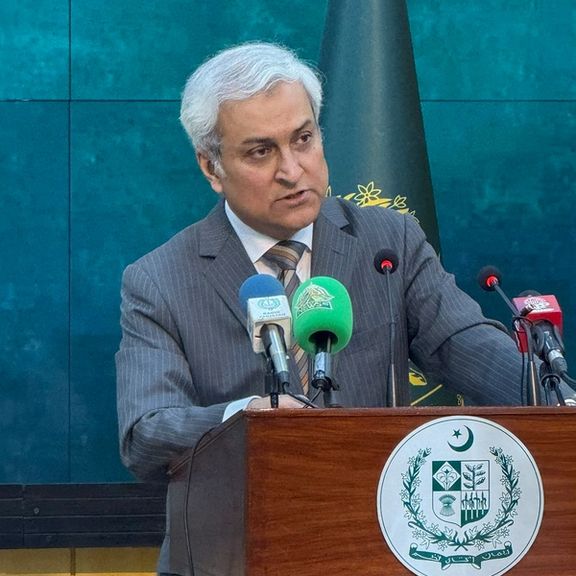Pakistan Hopes Next Round Of Taliban Talks Will Yield Results

Pakistan’s Foreign Ministry has expressed optimism that the next round of talks with the Taliban, scheduled for next week in Istanbul, will produce “positive results.”

Pakistan’s Foreign Ministry has expressed optimism that the next round of talks with the Taliban, scheduled for next week in Istanbul, will produce “positive results.”
Foreign Ministry spokesperson Tahir Andarabi told reporters on Friday that the second round of talks, initially planned for two days, extended to four as both sides sought common ground.
Speaking at a press conference on Friday, Andarabi said Pakistan expects the third round of talks, due to begin on November 6, to lead to “positive outcomes.”
The second round, which ended on Thursday without a breakthrough, concluded with both delegations agreeing to extend the ceasefire.
Türkiye’s Foreign Ministry confirmed that Pakistan and the Taliban reached a general understanding to continue the truce, adding that discussions on maintaining the ceasefire will resume on 6 November.
“Pakistan participated in the Istanbul talks, which started on 25 October, in good spirit and with positive intention,” Andarabi said, noting that the talks were prolonged in hopes of achieving an agreement.
He reiterated Islamabad’s firm position that Afghan soil must not be used for terrorist acts against Pakistan.
Andarabi emphasised that Pakistan is not seeking escalation but expects the Taliban to honour their international obligations and address Islamabad’s “legitimate security concerns” through verifiable actions against Tehreek-e-Taliban Pakistan (TTP) and Baloch separatists.
He said that for the past four years, Pakistan has repeatedly urged the Taliban to take “decisive and effective measures” against militant groups operating from Afghan territory.
According to Andarabi, Pakistan has shared credible intelligence with Taliban authorities on the presence of TTP leaders and Baloch separatists inside Afghanistan, but cross-border attacks have continued to rise despite repeated assurances.
He added that the Taliban have ignored Pakistan’s legitimate concerns and warned that Pakistani forces have responded firmly to provocations aimed at destabilising the border and enabling terrorism. “Any future provocations,” he said, “will face an equally strong response.”
Andarabi stressed that Pakistan continues to support a “peaceful, stable, united, and prosperous Afghanistan.”
He said that after the Taliban’s return to power in August 2021, Pakistan had expected improved prospects for regional peace and cooperation. Despite ongoing security challenges, Islamabad launched several initiatives to assist Afghanistan, including providing special transit trade facilities.
He added that Pakistan upgraded its diplomatic relations with Kabul from a chargé d’affaires to a full ambassador and supported the extension of the China–Pakistan Economic Corridor (CPEC) into Afghanistan.
The Taliban, however, maintain that the TTP issue is an internal matter for Pakistan. On Thursday, Taliban Interior Minister Sirajuddin Haqqani said the TTP problem must be resolved domestically within Pakistan.
Taliban spokesperson Zabihullah Mujahid said the Taliban seeks constructive relations with Pakistan, describing the Istanbul talks as a “complex process” that ended with an agreement for both sides to reconvene and address outstanding issues.